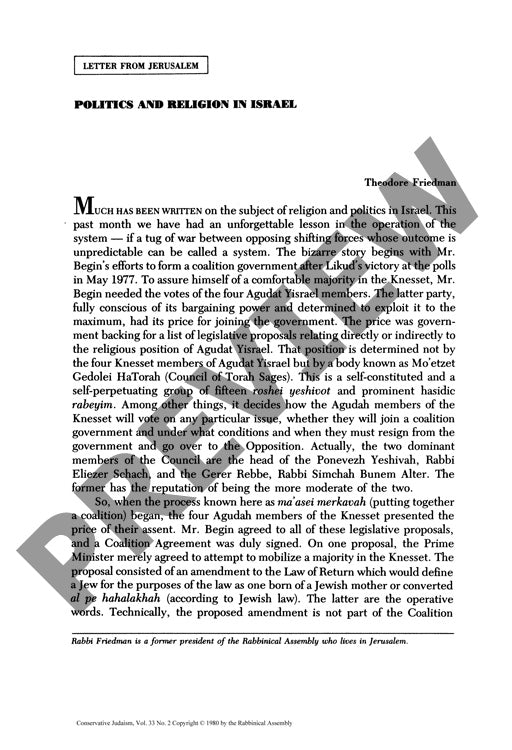Politics and Religion in Israel Letter F
Couldn't load pickup availability
When Likud's 1977 electoral victory upended three decades of Labor dominance in Israel, it set off an unprecedented series of religious-political bargains that would reshape the nation's democratic character. Prime Minister Begin's desperate need for a parliamentary majority led to extensive concessions to the ultra-Orthodox Agudat Yisrael party, creating a template for religious minority influence that persists today. Through direct observation and political analysis of three pivotal legislative battles - the anti-missionary bill targeting Christian conversion activities, amendments to the National Service Law exempting Orthodox women from military service, and proposed restrictions to Israel's abortion law - a clear pattern emerged of religious authority trumping secular governance. The Mo'etzet Gedolei HaTorah (Council of Torah Sages), a self-constituted body of fifteen religious authorities, wielded outsized influence through its control of just four Knesset seats, effectively determining legislative outcomes on matters of faith and state. The resulting coalition proved dangerously unstable, as evidenced by internal Likud divisions and a near-government collapse over the abortion amendment. This misalliance of religion and politics forced pragmatic accommodations that compromised democratic principles, revealing how Israel's parliamentary system enables disproportionate religious minority influence over national policy.

More Information
-
Physical Description
-
Publication Information
Published 1980
ISBN
-
Publication Credits
Theodore Friedman

